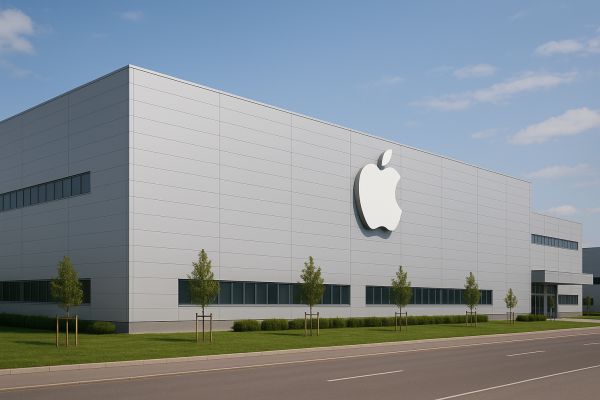Apple is ramping up its chip-development efforts, planning many new chips for future Macs, AI servers, and even entirely new product categories. According to recent reports, its chip-design team is working on several processors that will power faster Macs and support Apple’s AI goals.
Mac processors in the pipeline
Although M5 chips are expected later in 2025, the company is already developing their successors. Bloomberg reports that Apple’s next processor, codenamed “Komodo,” will likely form the M6 family. This chip is due in 2026, possibly in a redesigned MacBook Pro model.
Looking beyond that, Apple already has a follow-up to M6 on the drawing board, codenamed “Borneo,” which is expected to become the M7 chip. That processor could be especially important, as it may be Apple’s first chip made on TSMC’s 1.4 nm process—a major leap in manufacturing technology.
Of perhaps greatest intrigue is a chip called “Sotra,” described by Bloomberg as a more advanced Mac processor. While details are scarce, this suggests Apple is developing a high-end chip with performance well above the Ultra versions of its standard M-series. It could help set the Mac Pro even farther apart from other Mac models.
The M6 is reported to use TSMC’s 2 nm process, improving on M5’s planned use of TSMC’s third-generation 3 nm (N3P) technology. According to Tom’s Guide, Apple intends to put M6 into updated iPad Pro models in early 2027.
Sources also say Apple is working to integrate its own modem into M6. Its second-generation C2 5G modem may debut in those iPad Pros, making them the first tablets to use Apple’s modem instead of Qualcomm’s Snapdragon 5G chips. By contrast, the first-generation C1 modem is reportedly only in the iPhone 16e for now and has drawn some negative feedback.
The “Baltra” project—dedicated AI-server chips
As part of a major chip push, Apple plans processors just for AI servers. Under the “Baltra” project, these chips will handle Apple Intelligence requests and replace the high-end Mac chips now in its servers.
Baltra is a strategic move to reduce Apple’s reliance on external vendors for its AI infrastructure. Bloomberg says these server chips are due by 2027 in multiple versions—each offering about two, four, or eight times more CPU and GPU cores than the current M3 Ultra, which tops out at 32 CPU cores and 80 GPU cores.
Special chips for new product categories
Apple’s chip work extends beyond traditional computers. The company is building custom processors for future products that must be extremely power-efficient. As noted earlier, Apple sees its future in merging AI and wearables, which demands a new chip-making approach.
Bloomberg reports that Apple has made progress on a chip for smart glasses that could compete with Meta’s Ray-Ban devices. Based on Apple Watch processors but tailored for glasses, these chips aim for maximum energy efficiency. This suggests a serious push into smart glasses, possibly arriving by 2027.
Other reports say Apple is developing new chips for future AirPods and Apple Watch models with built-in cameras. While details are scarce, adding cameras would be a major feature upgrade and would need special chips to process visual data efficiently while preserving battery life.
Conclusion
Apple’s chip roadmap is ambitious, laying out a multi-year plan and its future product strategy. The server and wearable chips are especially noteworthy, pointing to whole new product lines. Pushing to TSMC’s 1.4 nm process—about ten silicon atoms wide—tests the limits of physics and brings quantum effects into play. It will be exciting to see how Apple overcomes these development challenges.






















